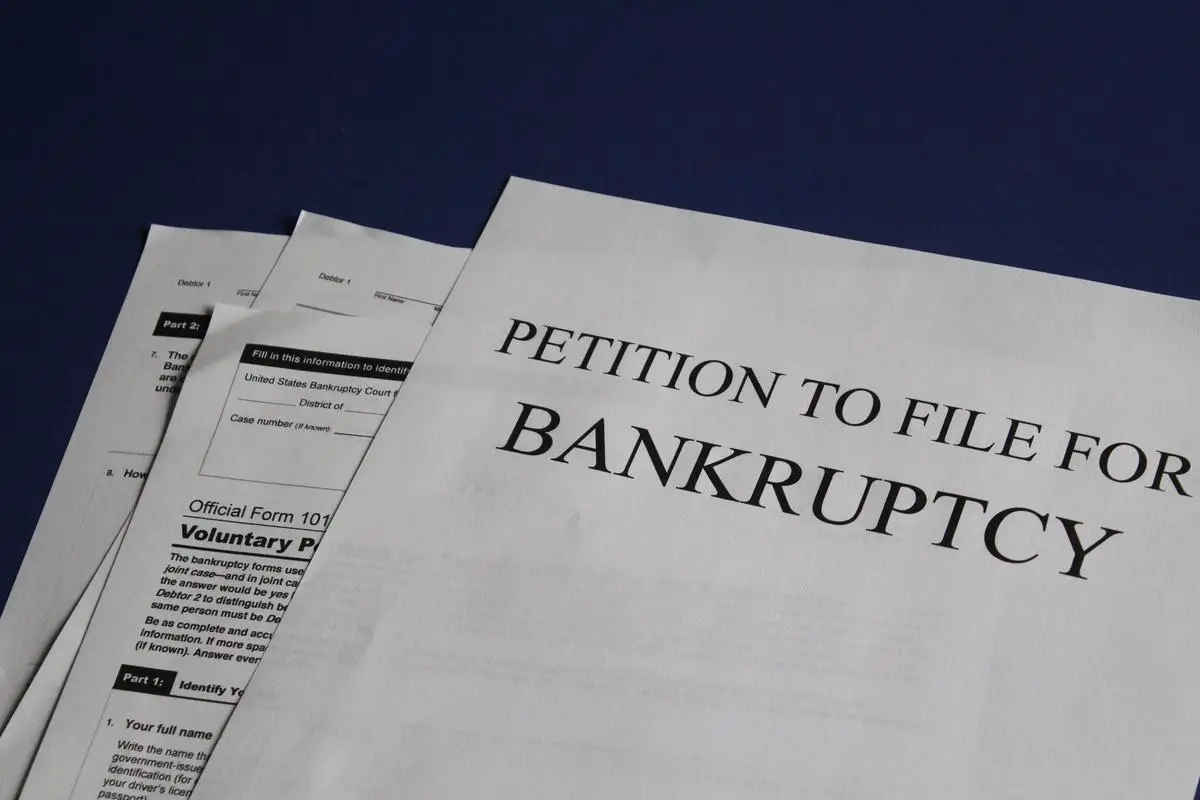In the world of finance, bankruptcy is a term that provokes a wide range of emotions – from fear and confusion, to relief and new beginnings. Grasping the intricacies of bankruptcy, evaluating common reasons provided for filing bankruptcy, and sifting through measures for avoiding bankruptcy, has become extremely pertinent in today’s uncertain economy. This journey of understanding bankruptcy, exploring its common excuses, investigating their legitimacy, considering the effects of bankruptcy, and envisaging strategies for preventing it, can be quite enlightening. The financial world is murky and unforgiving; hence an informed perspective becomes a powerful resource to navigate through its tumultuous tides.
Understanding Bankruptcy
Understanding Bankruptcy: Defining Bankruptcy
Bankruptcy refers to a legal process where an individual or an organization cannot pay off their outstanding debts. The bankruptcy process starts with a petition filed by the debtor or on behalf of the creditors, which is less common. All of the debtor’s assets are measured and evaluated, where the assets may be used to pay off a portion of the outstanding debt.
Different Types of Bankruptcy
Three common types of bankruptcy include Chapter 7, Chapter 11, and Chapter 13. Chapter 7 Bankruptcy, or ‘liquidation’, is where the debtor’s non-exempt assets are sold to repay the creditors. Chapter 11, also known as ‘reorganization’, typically applies to businesses and allows them to keep their business while reorganizing and paying off their debts over time. Chapter 13, or ‘debt consolidation’, is aimed at individuals with a regular income who can repay at least a portion of their debts in installments over three to five years.
Causes of Bankruptcy
Bankruptcy can occur for various reasons, often stemming from poor financial management, significant changes in market conditions, or unanticipated expenses. Other common causes of bankruptcy include reduction in income, job loss, high medical expenses, divorce, or student loan debt.
Bankruptcy Excuses
When dealing with bankruptcy, individuals or organizations may put forward excuses, citing several reasons why they’re unable to fulfill their debt responsibilities. These excuses can often be seen in a negative light, attempting to divert blame or responsibility. Some common bankruptcy excuses include a lack of financial education or understanding, bad luck or unfortunate circumstances, or blaming creditors for providing the debt in the first place.
It’s important to realize that while bankruptcy can offer a fresh financial start for many individuals and organizations, it’s a major financial decision with long-term consequences. It can stay on your credit report for 7-10 years, affecting your ability to open credit card accounts or get approval for loans.
To avoid bankruptcy, it’s paramount that individuals and organizations practice sound financial management, emphasize financial literacy education, and seek out the advice of financial professionals when needed. This can include creating a realistic budget, establishing an emergency fund, and exploring viable debt management options. Furthermore, it’s important to take responsibility for one’s own financial decisions and understand the obligations that come with borrowing money.
To sum it up, there might indeed be justifiable reasons prompting individuals or entities to declare bankruptcy. However, it’s critical to distinguish between legitimate causes and mere pretexts. Gaining a comprehensive understanding of one’s financial state and making preemptive strides can set the stage for fiscal stability and enhancement, whether it’s an enterprise on the brink of bankruptcy or an individual contemplating it.

Common Excuses for Bankruptcy
Delving Deep into the Drivers of Bankruptcy
Bankruptcy is often associated with sentiments of desperation and defeat. Although, a comprehensive understanding of the typical triggers behind bankruptcy declarations can assist in refuting these misunderstandings. High on the list of reasons are financial mismanagement, unforeseen expenditures, loss of employment, and economic recessions.
Mismanagement of Finances
One of the most frequently cited reasons behind bankruptcy is mismanagement of personal finances. This can occur through overspending, incurring too much high-interest debt, or failing to save for emergencies. Individuals may fall into the debtor trap via credit card misuse, as their easy access and high interest rates can lead to a debt spiral if not handled properly. Additionally, a lack of financial awareness can result in inadequate budgeting and planning, making it difficult to manage cash flow effectively.
Unexpected Expenses
Unexpected expenses such as medical bills or emergency repairs often force individuals into heavy debt, with bankruptcy becoming the only escape. According to a study by the American Journal of Public Health, medical issues contributed to nearly 66.5% of all bankruptcy filings. High medical costs combined with a loss of income during the recovery period can quickly deplete savings and drive people into bankruptcy.
Job Loss
Job loss is another common excuse for bankruptcy. The loss of a steady income source can make it difficult for people to meet their monthly financial commitments, such as mortgage payments, car loans, and utility bills. Even with the cushion of severance pay or unemployment benefits, these often fall short of covering these expenses for extended periods. If an individual is unable to secure new employment promptly, bankruptcy may become unavoidable.
Economic Downturn
Economic downturns or recessions place significant stress on personal finances due to factors such as job losses, wage cuts, and reduced working hours. During these challenging times, many people find themselves struggling to pay their bills. As economic instability continues, bankruptcy cases tend to rise, reflecting the financial hardships endured by individuals and businesses alike.
Divorce or Separation
Experiencing a divorce or separation can have colossal financial implications, often culminating in bankruptcy. Legal fees, alimony, and child support payments can create enormous financial burdens. Additionally, the shift from double to single income can make it challenging to maintain the same standard of living, pushing some individuals into debt and, in some cases, bankruptcy.
In conclusion, personal financial management to larger macroeconomic conditions can cause bankruptcy. Having full knowledge of these factors can guide individuals in mapping out strategies to protect their financial stability and potentially avoid insolvency. Critical in minimizing these risks are financial enlightenment, effective budgeting, and maintaining an emergency fund.

Photo by melindagimpel on Unsplash
The Truth about these Excuses
Taking an In-depth Look at Bankruptcy Excuses: A Comprehensive Analysis
Bankruptcy is a legal recourse available to individuals or businesses to alleviate their financial predicaments by having their debts discharged. The factors that contribute to bankruptcy and the reasons provided by individuals or businesses for filing are often perceived as “excuses.” In this section, we aim to evaluate the genuineness and validity of the most frequently mentioned bankruptcy excuses.
Healthcare Costs
In the United States, excessive medical expenses top the list of most frequently cited reasons for bankruptcy. Analysis of the US healthcare system points towards this being a legitimate “excuse,” given the exorbitant prices of major treatments, which can cause a financial burden even for the fully insured. Furthermore, long-term illnesses often result in a long leave of absence from work, exacerbating the financial distress.
Job Loss
Another common cause for individuals to file for bankruptcy is sudden job loss. This may be a legitimate cause, given that unemployment can severely impact a person’s ability to meet financial obligations. However, this excuse is sometimes contested. Critics argue that part of being financially responsible is maintaining an emergency fund for circumstances like job loss, and the lack thereof may exhibit financial mismanagement.
Exorbitant Credit Card Spending
Excessive credit card spending leading to unmanageable debt is often cited as a cause for bankruptcy. Whether this qualifies as a legitimate cause or an excuse is debatable. Some argue that the easy access to credit and the lure of consumerism leads individuals to spend beyond their means. Others, however, argue this demonstrates a lack of monetary discipline and is therefore more of an excuse than a cause.
Divorce
The financial ramifications of divorce often push individuals toward bankruptcy. Divorce often results in an individual suddenly needing to support a household on a single income, potentially while providing child support or alimony. There may also be substantial legal fees involved. Some argue that this is a legitimate cause of bankruptcy, while others contend that planning and prenuptial agreements can mitigate many financial risks associated with divorce.
Understanding the Basics of Small Business Bankruptcy
Bankruptcy pertains to a legally governed process that is often the last resort for individuals or businesses unable to repay their debts. Particularly for small businesses, this step is taken when they’re unable to keep up with their mounting financial commitments. These financial woes can be due to a variety of factors, from poor revenues to challenging market conditions. The perspective regarding this point is somewhat divided, with some arguing it’s a poor excuse citing inadequate planning and management, while others empathize with the inherent risk associated with entrepreneurship.

Impacts of Bankruptcy
Navigating the complexities of Bankruptcy
The concept of bankruptcy is overseen by federal law, designed specifically to aid the indebted party to start anew by wiping out most of their existing debts. Consideration of this financial reset is undertaken when the debtor, be it an individual or a business, is rendered incapable of fulfilling their debt obligations. By taking a closer look at the specifics of the bankruptcy process, one can better understand whether it operates as a genuine solution to financial hardship or simply an excuse for poor financial management.
Effects on individuals
When an individual declares bankruptcy, it has wide-ranging effects on their financial and personal life. One of the immediate effects of bankruptcy is that creditors are generally prohibited from collecting on past debts. This can provide the debtor with immediate financial relief and stop harassing calls from collectors.
Despite this immediate relief, bankruptcy has longer-term financial consequences. The most significant is the severe impact it can have on the debtor’s credit score. While credit injury varies depending on the person’s credit history, it’s safe to say that the impact is profound and long-lasting. For example, a bankruptcy filing can remain on the individual’s credit report for up to ten years, making it more challenging to secure future credit, loans, or housing.
The societal impact can also be significant. Bankruptcy can lead to social stigma due to the perception of failure or irresponsibility, potentially straining personal relationships.
Impacts on Businesses
Similar to individuals, filing for bankruptcy can provide immediate financial relief for struggling businesses. It can halt debt collections and provide time for the business to regroup or restructure. Companies can continue operations while being protected from creditors.
Despite the immediate advantages, bankruptcy carries long-term consequences for businesses as well. It can negatively impact credit ratings, making it difficult for the company to secure future financing. It can also result in a loss of control if the court appoints a trustee to oversee operations.
Moreover, bankruptcy can have a significant effect on company stakeholders. Shareholders may lose all or a substantial portion of their investments whereas suppliers and vendors may lose a significant customer and often must write off any unpaid invoices.
Beyond Legal and Financial Impacts: Societal Implications
Declaring bankruptcy isn’t just a financial decision; it’s a societal one too. Public perception can be largely negative, especially when businesses file for bankruptcy. Customers may decide not to associate with a company because of its financial instability, and employees may face job insecurity, or worse, unemployment. This societal distress can be particularly hard felt in smaller communities where local businesses support the local economy or employees live in close proximity.
Examining the Root Causes of Bankruptcy
Events like sudden medical emergencies, abrupt job loss or unanticipated economic downturns can often catapult individuals or businesses into the realm of bankruptcy. However, these occurrences are more accurately viewed as legitimate triggers for bankruptcy rather than ‘excuses’. On the other hand, using reasons such as ill-advised financial decisions or overextending personal finances could be seen as making excuses for declaring bankruptcy. Regardless of the precipitating factors, the effects of bankruptcy are profound, impacting all facets of life. Due to its far-reaching impacts, it’s of paramount importance to seek professional financial guidance before making the drastic decision to file for bankruptcy in order to fully grasp the repercussions and explore other viable alternatives.

Bankruptcy Prevention Strategies
Delving Deeper into the Process of Bankruptcy: The Financial Abyss
Bankruptcy is a legal status ascribed when an individual or business finds themselves incapable of meeting their debt obligations. The intricacies of bankruptcy come into play when either the debtor or their creditor initiates a legal petition to declare bankruptcy. This legal procedure provides an avenue for the overwhelmed debtor to wipe the slate clean by absolving debts that are beyond their financial capacity, and it also ensures creditors may recoup their losses through the liquidation of the debtor’s assets.
The two main forms of bankruptcy are liquidation, where the debtor’s assets are sold off in an attempt to satisfy creditors; and reorganization, where debtors devise plans to gradually pay off outstanding debts over a predetermined time frame.
Bankruptcy Prevention Strategies: Crucial to Financial Health
There are practical strategies one can employ to avoid falling into bankruptcy. These include effective money management strategies, foresighted financial planning, and seeking professional financial advice.
Effective Money Management: Avoid Spending Beyond Your Means
Proper money management cannot be overemphasized when considering bankruptcy prevention strategies. It involves diligently managing your resources, ensuring that expenses never eclipse your income, and cultivating an active savings plan. A proactive approach to managing your income, budgeting wisely, monitoring your expenses, and savings promotes healthy spending habits, thus mitigating the risk of bankruptcy.
Financial Planning: Map Out Your Financial Future
Financial planning, similar to a roadmap, guides you towards your financial goals. It includes setting financial objectives, breaking them into achievable targets, and then charting the best path towards success. Regular financial reviews and adjustments of your financial goals are equally important as they provide you a clear picture of your current situation and necessary changes needed to keep you on track.
Creation of an emergency fund is an example of good financial planning. One never knows when a financial crisis could hit. Thus, being prepared with an emergency fund is one measure to prevent bankruptcy.
Professional Financial Advice: Your Bankruptcy Life Jacket
Consulting a financial advisor is another strategy for avoiding bankruptcy. Professional financial advisors possessing in-depth knowledge of money management, financial planning, and investment modalities can provide useful strategies suitable to your specific situation. Most times, the fresh perspective they bring could make the difference between financial stability and bankruptcy.
Financial advisors can guide you in selecting the right investments, creating a suitable budget, retirement planning, tax planning, and more.
Importance of Insurances and Investments
The role of insurance policies and investment cannot be overlooked in bankruptcy prevention strategies. They serve as mediums of saving and growing funds, protection against financial risk and loss, and a means of ensuring financial stability.
If executed smartly, insurance and investment strategies can be set in place to deal with future uncertainties and unforeseen circumstances that could result in financial crisis leading to bankruptcy.
The Value of Financial Literacy
Being financially literate can help prevent falling into the bankruptcy pit. Possessing knowledge about managing personal finances, understanding credit and debt implications, investments, and retirement plans can equip you to make informed decisions and assume control over your financial future.
In conclusion, falling into bankruptcy is not always a consequence of bad luck, but often, a reflection of poor financial decisions, poor money management, lack of financial planning, and refusal to seek professional advice. With the right approach, discipline, and assistive guidance, it is possible to stay out of the clutches of bankruptcy.

Ultimately, the labyrinth of bankruptcy—its causes, impacts, and preventive measures—manifests itself as a complex, often misunderstood domain. It’s far too easy to oversimplify reasons behind bankruptcy as merely excuses, overlooking the deeper economic structures and personal circumstances that often play a significant role. Bankruptcy isn’t an event that occurs in isolation; it has far-reaching impacts on individuals and the features of our society. That said, possessing fundamental financial management skills, crafting sound financial plans, and seeking professional financial counsel can help individuals and businesses steer clear of the shoals of insolvency. This exploration to fully comprehend bankruptcy and its complexities elevates our understanding, enabling a more informed navigation of financial uncertainties and challenges.

Recent Comments